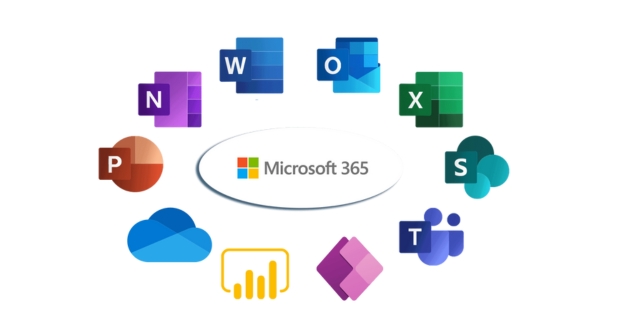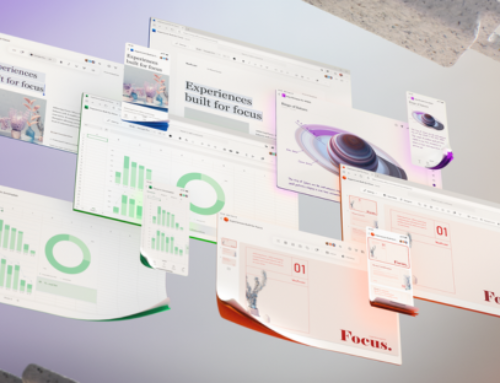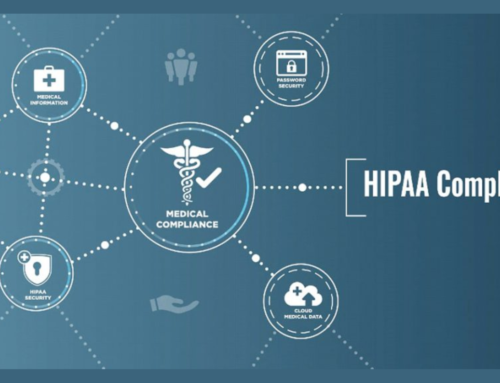Introduction to Industry-Specific Microsoft 365 Services
In the dynamic landscape of digital solutions, Industry-Specific Microsoft 365 Services have emerged as a transformative force, offering tailored solutions designed to meet the unique needs of various sectors. This section provides a foundational understanding of these specialized services, delving into their definition and emphasizing the critical importance of customizing solutions for different industry sectors.
Definition of Industry-Specific Microsoft 365 Services:
Industry-Specific Microsoft 365 Services refer to customized solutions within the Microsoft 365 suite that are specifically designed to address the distinct challenges and requirements of various industries. These services go beyond the standard applications and functionalities, offering tailored features, workflows, and integrations that align with the intricacies of each sector. Whether in healthcare, finance, manufacturing, or other fields, these services aim to provide a more nuanced and efficient digital environment.
Importance of Tailoring Solutions for Different Sectors:
The one-size-fits-all approach is becoming obsolete in today’s diverse business landscape. Tailoring Microsoft 365 solutions for different sectors holds immense significance as it allows organizations to optimize their digital environments according to industry-specific workflows and regulations. This customization ensures that businesses can leverage the full potential of Microsoft 365, enhancing efficiency, collaboration, and overall operational effectiveness within their unique contexts.
By customizing Microsoft 365 for specific industries, organizations can streamline processes, improve user experiences, and address compliance requirements more effectively. The adaptability of Industry-Specific Microsoft 365 Services empowers businesses to stay agile in the face of evolving challenges, providing a competitive edge in an increasingly specialized and dynamic business environment.
Overview of Microsoft 365 Applications Relevant to Industries
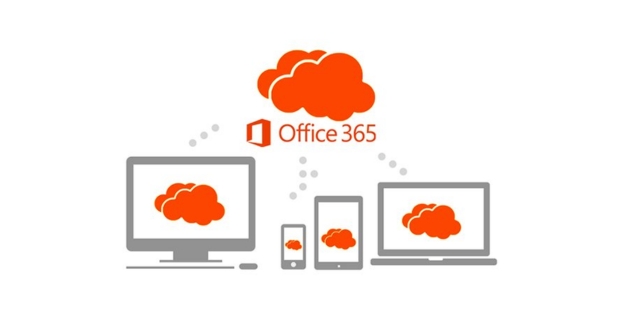
Microsoft 365, a comprehensive suite of applications, stands as a versatile toolkit that transcends industry boundaries. This section provides a detailed examination of key applications such as Word, Excel, Teams, and more, elucidating their relevance and industry-specific use cases within the Microsoft 365 ecosystem.
Detailed Look at Applications (Word, Excel, Teams, etc.):
- Word: As a universal word processing tool, Word finds application across industries for document creation, from healthcare reports and financial documents to manufacturing manuals.
- Excel: With its robust spreadsheet capabilities, Excel becomes indispensable for industries such as finance, enabling complex financial modeling and data analysis. In manufacturing, it aids in inventory management and quality control.
- Teams: Microsoft Teams emerges as a hub for collaboration, facilitating seamless communication and project management. In healthcare, Teams enhances interdisciplinary collaboration among medical professionals, while in manufacturing, it streamlines production coordination.
- PowerPoint: Ideal for creating visually engaging presentations, PowerPoint serves diverse industries. In healthcare, it aids in patient education materials, while in marketing, it supports campaign presentations.
- OneNote: Across industries, OneNote serves as a versatile digital notebook. In education, it supports lesson planning, while in research and development, it becomes a collaborative space for ideas and findings.
Industry-Specific Use Cases for Each Application:
- Healthcare: In healthcare, Microsoft 365 applications support secure communication (Teams), patient record management (Excel), and collaborative research documentation (OneNote).
- Finance: Excel becomes a powerhouse for financial modeling, budgeting, and analysis. Teams facilitate real-time collaboration among financial teams, while Word is utilized for report generation and documentation.
- Manufacturing: Teams streamline production coordination, Excel manages inventory and quality control data, and Word is employed for creating standardized operational documents.
- Education: Word and PowerPoint aid in lesson planning and content creation, while Teams serves as a virtual classroom and collaboration platform for educators.
- Marketing: PowerPoint is crucial for creating visually appealing campaigns, Word supports content creation, and Teams facilitates collaborative project management and communication.
In each industry, the adaptability of Microsoft 365 applications enables organizations to leverage a tailored digital toolkit that aligns with their specific needs and workflows. The subsequent sections will delve deeper into the benefits of industry-specific customization and real-world case studies that showcase successful implementations.
Benefits of Industry-Specific Customization
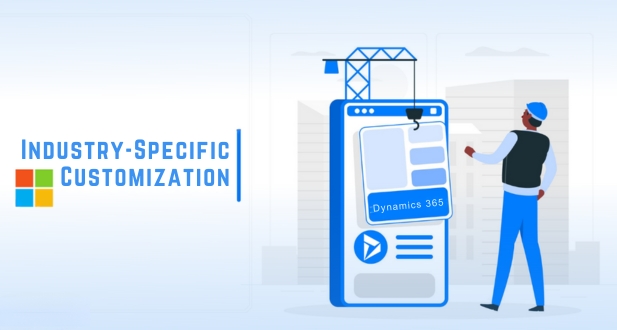
Customizing Microsoft 365 for specific industries goes beyond mere adaptation – it unlocks a host of benefits that significantly impact efficiency, productivity, and collaboration within the unique context of each sector.
Enhanced Efficiency and Productivity:
Tailoring Microsoft 365 to industry-specific workflows directly contributes to enhanced efficiency and productivity. For instance, in the healthcare sector, customizing applications like Teams streamlines communication among medical professionals, ensuring faster decision-making and ultimately improving patient care. In finance, where precision is paramount, Excel can be customized to automate complex calculations, reducing manual errors and boosting overall efficiency.
Moreover, industry-specific customization allows organizations to create standardized templates and workflows. This consistency not only accelerates processes but also reduces the learning curve for employees. In manufacturing, customized templates in Word and Excel can be employed for standardized operating procedures, ensuring uniformity and efficiency across the production floor.
Improved Collaboration within the Industry Context:
Collaboration lies at the heart of successful businesses, and industry-specific customization enhances collaborative efforts within the unique context of each sector. In education, Microsoft Teams can be customized to serve as a centralized platform for virtual classrooms, collaborative lesson planning, and communication between educators and students.
In the marketing industry, customization enables the integration of project management tools within Teams, fostering seamless collaboration among team members. Customized document templates in Word and PowerPoint ensure brand consistency and streamline the creation of marketing materials, leading to a more cohesive and impactful brand presence.
Beyond applications, industry-specific customization extends to security settings, ensuring that collaboration occurs within the framework of industry regulations. In finance, where data security is paramount, customization of access controls and encryption measures within Microsoft 365 provides a secure collaborative environment for financial teams.
Case Studies: Successful Implementations in Specific Industries
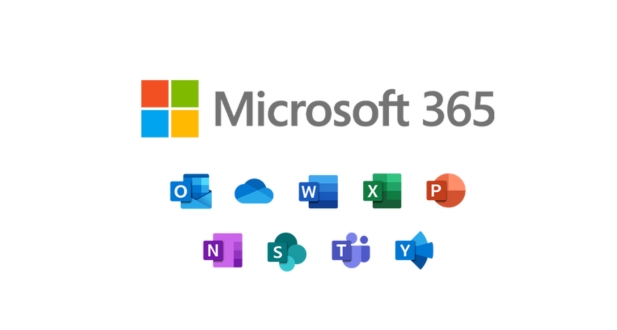
Examining real-world case studies provides valuable insights into the tangible benefits of industry-specific customization within Microsoft 365. Let’s explore successful implementations in healthcare, finance, manufacturing, and beyond, while drawing lessons learned and identifying best practices.
Healthcare: Streamlining Communication for Improved Patient Care
In a leading healthcare institution, customization of Microsoft Teams proved instrumental in streamlining communication among medical professionals. By creating specific channels for different departments and integrating secure file sharing, the hospital achieved faster decision-making, enhanced collaboration, and improved patient care. Lessons learned from this implementation include the importance of user training to maximize Teams’ potential and continuous feedback loops to refine the platform’s usage over time.
Finance: Optimizing Financial Modeling with Excel Customization
A financial firm successfully leveraged customization in Microsoft Excel to optimize financial modeling and analysis. Tailoring Excel functions to meet specific financial calculations allowed for quicker and more accurate decision-making. Best practices identified in this case study include regular updates to customized templates to align with evolving financial regulations and ensuring a secure collaboration environment through customized access controls.
Manufacturing: Standardizing Operations with Customized Templates
In a manufacturing setting, Microsoft Word and Excel were customized to create standardized operating procedure templates. This customization not only ensured consistency across the production floor but also streamlined document creation, reducing errors and improving overall efficiency. Lessons learned include the importance of involving end-users in the customization process and the need for periodic reviews to keep templates aligned with evolving industry standards.
Education: Creating a Collaborative Virtual Classroom with Teams
A prominent educational institution customized Microsoft Teams to serve as a centralized platform for virtual classrooms and collaborative lesson planning. This implementation improved communication between educators and students, creating an engaging and efficient online learning environment. Best practices include comprehensive training for educators to maximize the use of Teams features and creating a centralized hub for educational resources.
Marketing: Enhancing Brand Consistency and Collaboration
In a marketing agency, customization of document templates in Word and PowerPoint ensure brand consistency across various client deliverables. Integrating project management tools within Teams enhanced collaborative efforts among team members, leading to more streamlined workflows and improved project outcomes. Best practices involve regular updates to templates based on evolving branding guidelines and utilizing Teams as a centralized collaboration hub.
Tailoring Microsoft 365 for Healthcare
Customizing Microsoft 365 for the healthcare industry involves identifying specific opportunities to enhance operational efficiency, collaboration, and data security. This section explores customization opportunities in healthcare and emphasizes crucial compliance considerations, particularly in the context of the Health Insurance Portability and Accountability Act (HIPAA).
Customization Opportunities in Healthcare:
- Secure Communication Platforms: Microsoft Teams can be customized to create secure communication channels for healthcare professionals. Tailoring features such as secure file sharing, encrypted messaging, and virtual consultations ensures compliant and efficient communication within the healthcare ecosystem.
- Collaborative Patient Care: Customizing Microsoft 365 applications facilitates collaborative patient care. By integrating patient records securely within Excel and enabling real-time collaboration through Teams, healthcare providers can streamline decision-making processes, ensuring comprehensive and timely care.
- Appointment Scheduling: Microsoft 365 can be tailored to support efficient appointment scheduling. Customizing Outlook calendars and integrating scheduling tools within Teams can enhance patient appointment management, reducing wait times and improving overall patient experience.
Compliance Considerations (HIPAA):
- Secure Data Storage and Transmission: Healthcare customization within Microsoft 365 includes implementing robust security measures to ensure the secure storage and transmission of patient data. This involves encryption protocols, secure access controls, and adherence to HIPAA guidelines for data protection.
- Access Controls and Audit Trails: Customizing access controls within Microsoft 365 applications ensures that only authorized personnel can access sensitive patient information. Implementing audit trails allows healthcare organizations to track user activities, aiding in compliance verification and incident response.
- HIPAA-Compliant Email Communication: Customization of email communication within Outlook is essential to meet HIPAA compliance standards. This includes secure email encryption, user authentication measures, and restricting access to patient-related information to authorized personnel only.
- Customized Templates for Documentation: Microsoft Word and Excel can be customized to create standardized templates for healthcare documentation. Customization ensures that healthcare professionals adhere to consistent formats while capturing patient information, aiding in compliance with HIPAA documentation standards.
Tailoring Microsoft 365 for Finance
Customizing Microsoft 365 for the finance industry involves addressing specific needs related to financial modeling, data analysis, and compliance. This section explores the customization opportunities in finance and highlights the critical importance of security measures and compliance, particularly in the context of the Sarbanes-Oxley Act (SOX).
Financial Industry Customization Needs:
- Excel Customization for Financial Modeling: Finance professionals heavily rely on Excel for financial modeling and data analysis. Customizing Excel functions and templates streamlines complex financial calculations, enabling more accurate forecasting and decision-making.
- Secure Collaboration in Teams: Microsoft Teams can be customized to cater to the collaborative nature of financial teams. Integrating project management tools, customizing channels for specific projects, and ensuring secure file sharing within Teams enhance collaboration and project visibility.
- Real-time Financial Reporting in Power BI: Power BI, part of the Microsoft 365 suite, can be customized for real-time financial reporting. Creating customized dashboards and reports allows finance teams to gain insights into key financial metrics promptly.
Security Measures and Compliance (SOX):
- Access Controls and Encryption: Customizing access controls within Microsoft 365 applications is crucial for safeguarding financial data. Implementing encryption protocols ensures secure data storage and transmission, aligning with the data protection requirements outlined in SOX.
- Audit Trails for Financial Transactions: Microsoft 365 applications, including Excel and Teams, can be customized to create comprehensive audit trails for financial transactions. This customization ensures transparency and accountability, key elements of SOX compliance.
- Document Versioning and Compliance: In Word and Excel, customization features such as document versioning ensure that financial documentation aligns with SOX compliance requirements. Keeping track of document changes and maintaining version control is essential for auditability.
- Secure Email Communication: Email customization within Outlook is vital for maintaining secure communication in the finance industry. Ensuring email encryption, user authentication measures, and restrictions on the transmission of sensitive financial information contribute to SOX compliance.
Tailoring Microsoft 365 for Manufacturing
Customizing Microsoft 365 for the manufacturing industry involves addressing unique challenges related to production coordination, documentation, and integration with Industry 4.0 technologies. This section explores the customization opportunities in manufacturing and highlights the significance of integrating Microsoft 365 with advanced technologies associated with Industry 4.0.
Manufacturing-Specific Customization Use Cases:
- Standardized Operating Procedures in Word: Microsoft Word can be customized to create standardized operating procedure templates. Customizing these templates ensures consistency across the production floor, reduces errors, and streamlines documentation processes in compliance with industry standards.
- Inventory Management in Excel: Excel customization is essential for efficient inventory management. By tailoring Excel functions, manufacturing organizations can optimize inventory tracking, reorder processes, and ensure accurate stock levels, contributing to overall operational efficiency.
- Production Coordination through Teams: Microsoft Teams customization plays a crucial role in streamlining production coordination. Customizing Teams channels for specific projects, integrating scheduling tools, and facilitating secure communication within Teams enhance collaboration among production teams.
Integration with Industry 4.0 Technologies:
- IoT Data Integration with Power BI: Power BI, part of Microsoft 365, can be customized to integrate data from Internet of Things (IoT) devices on the manufacturing floor. Customized dashboards and reports enable real-time monitoring of production metrics, facilitating data-driven decision-making.
- Workflow Automation with Power Automate: Power Automate customization is vital for automating manufacturing workflows. Integrating Power Automate with Industry 4.0 technologies automates routine tasks, accelerates production processes, and reduces manual intervention.
- Collaboration on 3D Models in SharePoint: SharePoint customization facilitates collaboration on 3D models and CAD designs. Customizing SharePoint features ensures secure document sharing, version control, and collaborative editing, enhancing the efficiency of design and engineering teams.
Emerging Trends: Future of Industry-Specific Microsoft 365 Services
The future of Industry-Specific Microsoft 365 Services is poised to be shaped by the integration of cutting-edge technologies such as the Internet of Things (IoT), Artificial Intelligence (AI), and Blockchain. This section explores the emerging trends that signify the evolution of Microsoft 365 services tailored for specific industries, offering a glimpse into the transformative possibilities on the horizon.
Integration with IoT, AI, and Blockchain:
IoT Integration: The integration of Microsoft 365 with IoT technologies is set to revolutionize industry-specific customization. In manufacturing, for example, IoT sensors on production lines can collect real-time data, which, when seamlessly integrated with Microsoft 365, enables dynamic monitoring and predictive maintenance. This integration facilitates proactive decision-making and enhances overall operational efficiency.
AI-Driven Personalization: Artificial Intelligence is expected to play a pivotal role in personalizing Microsoft 365 services for specific industries. AI algorithms can analyze user behaviors, industry trends, and data patterns to offer intelligent suggestions and automate routine tasks. In healthcare, AI-driven personalization could lead to customized patient care plans, while in finance, it may optimize financial modeling based on historical data.
Blockchain for Enhanced Security: The incorporation of Blockchain technology into Microsoft 365 services brings heightened security and transparency. In industries such as finance, where data integrity is paramount, Blockchain can ensure secure and tamper-resistant financial transactions. Additionally, in healthcare, Blockchain can contribute to secure patient data management and interoperability between different healthcare systems.
Predictions for Evolving Industry Customization:
Predictive Customization: The future of industry-specific Microsoft 365 services involves predictive customization. Machine Learning algorithms will anticipate user needs and preferences, dynamically adapting interfaces, workflows, and features. For example, in education, predictive customization could offer personalized learning paths for students based on their individual progress and learning styles.
Deeper Integration with Power Platform: Microsoft 365 is likely to see deeper integration with the Power Platform, providing industries with enhanced low-code and no-code customization capabilities. This evolution empowers businesses to create custom applications seamlessly integrated with Microsoft 365, facilitating tailored solutions that align with specific industry requirements.
Extended Collaboration Capabilities: Industry-specific collaboration within Microsoft 365 is expected to evolve further. Enhanced collaboration tools, integrated with augmented reality (AR) for virtual meetings and training, could redefine how teams in manufacturing visualize complex processes or how healthcare professionals conduct virtual surgeries through collaborative AR platforms.
Considerations for Implementation and Adoption
Successful implementation and widespread adoption of industry-specific Microsoft 365 services require careful planning, strategic execution, and a focus on user engagement. This section outlines key considerations, including implementation strategies, user training, and adoption best practices.
Steps for Successful Implementation:
- Needs Assessment: Conduct a thorough needs assessment within the organization to identify specific industry requirements. Understand the pain points, workflow challenges, and user preferences that the customization aims to address.
- Customization Roadmap: Develop a clear roadmap for customization, outlining the sequence of changes, application integrations, and anticipated milestones. A well-defined plan helps manage expectations and ensures a smooth transition.
- User Involvement: Involve end-users early in the customization process. Gather feedback and insights to tailor Microsoft 365 services to align with user workflows. This participatory approach enhances user buy-in and minimizes resistance to change.
- Pilot Programs: Implement pilot programs to test customized features and workflows in real-world scenarios. This allows for iterative improvements based on user feedback before full-scale implementation.
- Collaboration with IT Teams: Collaborate closely with IT teams to ensure seamless integration of customized features. Address technical considerations, data migration, and compatibility to prevent disruptions during the implementation phase.
Training and Change Management:
- Comprehensive User Training: Provide comprehensive training programs to users, focusing on the new features and workflows introduced through customization. Tailor training materials to specific industry contexts, emphasizing the benefits of customization for daily tasks.
- Continuous Learning Opportunities: Establish a culture of continuous learning. Offer ongoing training opportunities, webinars, and resources to keep users updated on the latest features and best practices. This ensures that employees remain proficient with evolving Microsoft 365 services.
- Change Management Strategies: Implement robust change management strategies to address potential resistance to change. Clearly communicate the benefits of customization, address concerns proactively, and highlight how the changes align with broader organizational goals.
- User Support Mechanisms: Provide accessible user support mechanisms, such as help desks, chat support, and online resources. Promptly address user queries and concerns to foster a positive user experience during and after the customization implementation.
- User Adoption Metrics: Define key metrics to measure user adoption and engagement. Track user activities, feedback, and usage patterns to assess the success of the customization. Use this data to make informed adjustments and improvements.
Conclusion
In conclusion, the evolution of industry-specific Microsoft 365 services marks a transformative journey towards tailored digital solutions that resonate with the unique needs of diverse sectors. As organizations venture into customization, key considerations for successful implementation and adoption become paramount.
Customization, guided by a strategic roadmap and user involvement, empowers organizations to streamline workflows and enhance operational efficiency. The integration of emerging technologies like IoT, AI, and Blockchain propels Microsoft 365 services into the future, promising intelligent, secure, and industry-tailored solutions.
Crucially, success hinges on effective implementation strategies. From needs assessment and pilot programs to collaboration with IT teams, a meticulous approach ensures a seamless transition. User training and change management, supported by continuous learning opportunities and robust support mechanisms, play pivotal roles in fostering a positive user experience and widespread adoption.
As industry-specific Microsoft 365 services continue to evolve, organizations embracing these advancements position themselves at the forefront of digital innovation. By staying agile, prioritizing user engagement, and aligning customization with broader organizational goals, businesses can unlock the full potential of Microsoft 365, driving efficiency, collaboration, and success in their respective industries. The journey towards tailored digital excellence is not just a destination; it’s a continuous evolution shaping the future of industry-specific solutions.

